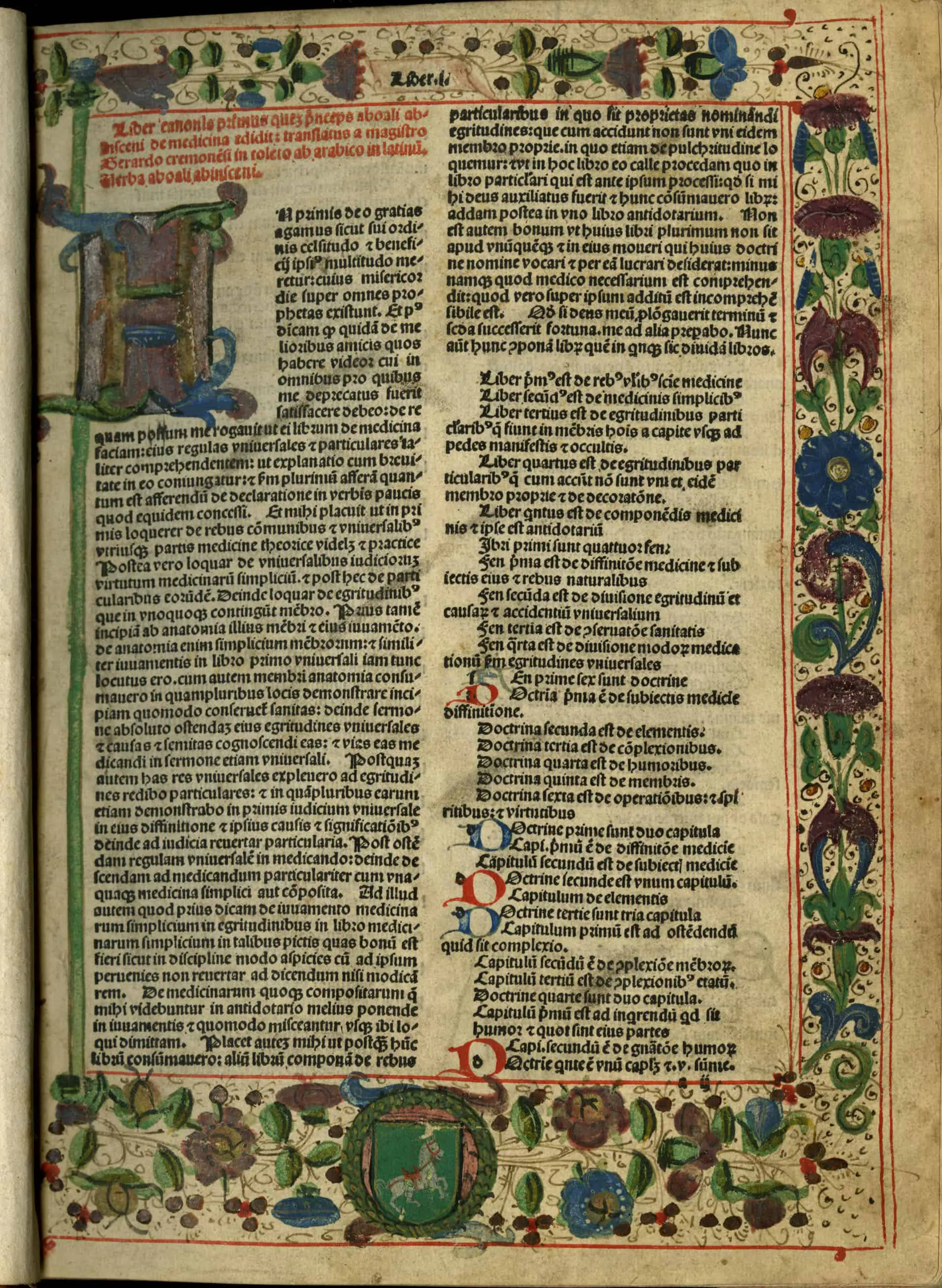A Presidential Curiosity
In medieval times the Arab-Islamic world developed a medical tradition that was one of the most advanced of the pre-modern world. Founded on Graeco-Roman medicine it saved many classical texts which might otherwise have been lost through their translations and reintroduction to Europe.
Avicenna, the medieval Latin name for Ibn Sina (c980-1037), was generally regarded as one of the greatest minds since Aristotle and was greatly influenced by his writings. Ibn Sina professes to have been practising medicine from the age of sixteen and his multi-faceted talents are evident in his literary works- over 250 titles. He served as a jurist and held several government positions in Persia but his primary interests were philosophy and medicine.
Ibn Sina’s great medical treatise is his Al-Qanun ti l-tibb also known as the “Canon of Medicine” from its Latin translation. For Ibn Sina medicine fell within the realm of Aristotelian natural sciences. In his Qanun he organised Galen’s medical writings into a system governed by Aristotelian philosophy, most notable being the fusion of Galen's humoral system with Aristotle’s doctrine of three life sources. The Qanun was so well received by physicians that Ibn Sina and others were honoured in their time with the title Jalnus al- Islam or ‘Galen of Islam’.
The beautifully presented Qanun is divided into five books:
Book I – al Kulliyyat (“Generalities” or “Universals”) is the most complicated. It is the study of the four elements, four humors, forces, etiology, symptoms, hygiene, causes of sickness and inevitability of death, modes of therapy, treatment by regimes and general surgical treatments. In essence a systematic framework for medical practice.
Book II - physical properties of drugs, their qualities and virtues.
Book III - diseases from head to toe beginning with the brain, nerves, eye, ear and ending with pains in joints.
Book IV - general pathology such as fevers, wounds, poisons, fractures.
Book V - compound drugs and their applications.

In addition to the Qanun, Ibn Sina wrote about 40 other medical works mostly preserved in manuscript. However, the Qanun’s importance lies in its systemisation of medicine and its attention to detail that gave the work authority over the discipline for hundreds of years.
Critics of the text suggested it was complete and this attitude toward the authority of the books and their authors kept Arab-Islamic medicine, until its decline, and to a certain degree, early medieval medicine in Europe, in a static condition.
About 100 years after Ibn Sina’s death Gerard of Cremona in Toledo translated the Qanun into Latin as the Canon of Medicine. This was later reworked and improved by Andrea Alpago (d. 1520), a physician and scholar. The improved version was published in Venice in 1527 and reprinted more than 30 times in the 15th and 16th centuries.
There are more than 50 complete or partial copies of the Qanun, and manuscripts of the many later commentaries on it are even more numerous. It has been observed that probably no other medical work ever written has been so much studied.

